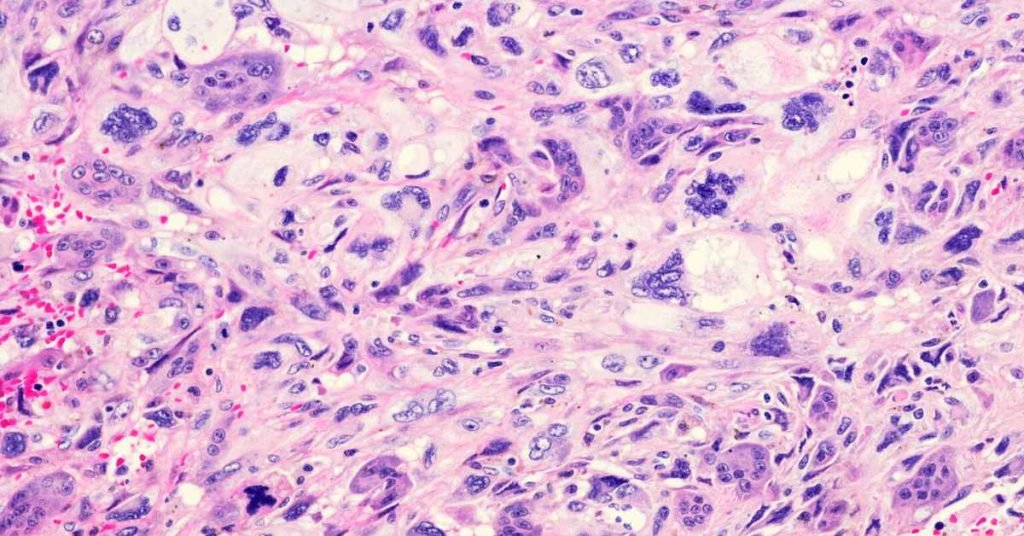Osteosarcoma is a rare and aggressive form of bone cancer that primarily affects the long bones, often occurring in the arms and legs.
The treatment of osteosarcoma typically involves a combination of surgery, chemotherapy, and sometimes radiation therapy.
As the search for complementary and alternative therapies gains momentum, some individuals have turned to tea as a potential aid in osteosarcoma treatment.
In this article, we’ll delve into the role of tea, examining whether it can provide any benefits in the context of osteosarcoma treatment, and separating myths from truths.
Understanding Osteosarcoma

Before exploring the potential benefits of tea in osteosarcoma treatment, it’s crucial to understand the nature of this rare cancer.
Osteosarcoma primarily affects adolescents and young adults, and its aggressive nature necessitates prompt and comprehensive treatment.
Conventional approaches include surgery to remove the tumor, chemotherapy to eradicate cancer cells, and in some cases, radiation therapy to target residual cells.
The Power of Tea
Tea has a long history of being associated with health benefits, attributed to its rich antioxidant content, anti-inflammatory properties, and various bioactive compounds.
Green tea, black tea, white tea, and herbal teas each offer a unique blend of phytochemicals that have been studied for their potential health-promoting effects.
While research has explored the impact of tea consumption on various health conditions, its role in osteosarcoma treatment remains a subject of interest and speculation.
Myths Surrounding Tea and Osteosarcoma Treatment

Tea as a Cure for Osteosarcoma: One common myth is that drinking certain types of tea can cure or directly treat osteosarcoma. It’s essential to dispel this misconception, as no scientific evidence supports the idea that tea alone can serve as a standalone cure for osteosarcoma. The conventional treatment methods, as prescribed by medical professionals, remain the primary course of action.
Replacing Conventional Treatment with Tea: Another misconception is the notion that tea can replace conventional treatments like surgery or chemotherapy. This is a dangerous belief, as delaying or avoiding evidence-based medical interventions can significantly compromise the chances of successful treatment and recovery.
One-size-fits-all Tea Treatment: Not all teas are created equal, and assuming that any tea can be beneficial for osteosarcoma is oversimplified. Different types of tea contain distinct compounds, and their effects on health can vary. A nuanced understanding of the specific properties of different teas is crucial to avoid falling for the myth of a one-size-fits-all tea treatment.
Truths and Promising Aspects
Antioxidant Properties: Tea, particularly green tea, is rich in antioxidants such as polyphenols and catechins. These compounds have demonstrated anti-cancer properties in various studies, including potential benefits in inhibiting the growth of cancer cells. While this is promising, it’s important to note that research on the direct impact of tea on osteosarcoma is limited.
Anti-Inflammatory Effects: Chronic inflammation is often associated with the development and progression of cancer. Tea, especially green tea, has been studied for its anti-inflammatory effects. By reducing inflammation, tea may contribute to an environment less conducive to cancer growth. However, the direct application of this to osteosarcoma requires further investigation.

Potential Supportive Role: Some studies suggest that tea consumption may have a supportive role in cancer treatment by enhancing the effects of chemotherapy and reducing side effects. While these findings are encouraging, they do not imply that tea can replace conventional treatments.
Final Word
In conclusion, while tea’s antioxidant and anti-inflammatory properties hold promise in the context of osteosarcoma treatment, it is crucial to approach these findings with caution.
Tea should not be considered a standalone treatment for osteosarcoma, and any treatment decisions should be made in consultation with healthcare professionals.
The myths surrounding tea as a cure or replacement for conventional treatments must be dispelled to ensure the best outcomes for individuals facing osteosarcoma.
As research in this field continues, a more comprehensive understanding of the potential role of tea in osteosarcoma treatment may emerge, but for now, it remains an adjunctive consideration rather than a primary therapeutic intervention.
MEDICAL DISCLAIMER
Itsnevernotteatime.com cannot and does not contain medical/health advice. The medical/health information is provided for general and educational purposes only and is not a substitute for professional advice.




